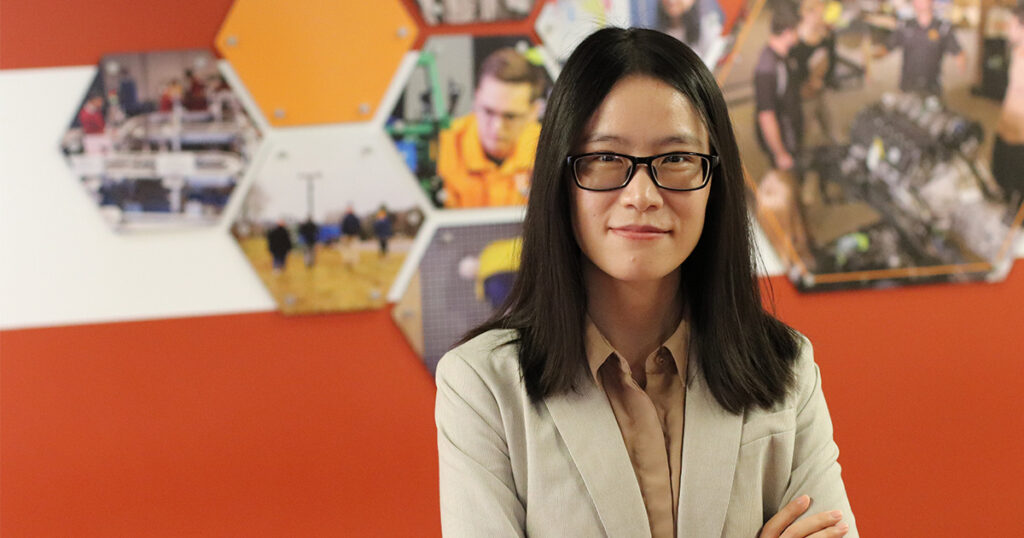Atrial fibrillation (AF) is an arrhythmia (irregular heartbeat) disorder caused by misfiring nerves in the heart. Up to 6.1 million Americans are affected by AF, but cases are on the rise; the US Centers for Disease Control and Prevention (CDC) estimate that that number will nearly double by 2030. Untreated AF can lead to stroke, heart failure, and other serious complications.
The condition can usually be treated with ablation, surgery in which doctors carefully scar the heart tissue in multiple places to block the erroneous nerve signals and restore the heart to a normal rhythm. However, up to 30 percent of AF patients still experience AF after multiple ablation procedures.
“Traditional ‘one-size-fits-all’ procedures do not correct for biological differences between patients, which makes them unreliable,” said Bing Yao, Dan Doulet Early Career Assistant Professor in the Department of Industrial and Systems Engineering. “Massive streams of data are readily available during a surgery, yet surgical decisions largely depend on the experience of whichever cardiology expert is present.”
The supply of those experts is also a prominent issue, as people living in rural or underdeveloped areas have less chance of receiving the potentially life-saving surgery.
Yao, herself an expert on physics-informed machine learning, wants to optimize cardiac surgical planning by creating an artificial intelligence (AI) algorithm that understands AF in unprecedented detail.
This September, Yao’s proposal received a four-year, $1.1 million grant from the National Science Foundation–National Institutes of Health Smart and Connected Health program, a funding initiative that promotes next-generation medical technologies.
Yao’s development of the AI will be supported by her co-investigator, Professor Hui Yang of Pennsylvania State University, and graduate and undergraduate students at UT.
“Our students will be exposed to research at the intersection of data science, computer simulation, signal processing, and biomedical health informatics,” said Yao, “preparing them for careers significantly improving healthcare service worldwide.”
In addition to Yao and other ISE professors, UT students will be mentored by the three medical experts on Yao’s grant. The clinical team includes Chief Medical Information Officer Christopher DeFlitch and Associate Professor Soraya Samii from Penn State Health and Fabio Leonelli, a staff cardiologist at James A. Haley Veterans’ Hospital.
“This interdisciplinary project was inspired by 25 years of frustration from our clinical team,” Yao said. “Their expertise and practical experience are essential to the success of this project.”
The team will construct an accurate, physics-based model of the cardiac system, then train a deep-learning AI on several types of data encountered during a cardiac patient’s diagnosis and surgery, including computerized tomography (CT) scans, magnetic resonance imaging (MRI) images, electrocardiograms, and intracardiac (within-heart) mappings.
“UT has been a leader in high performance and scientific computing (HPSC) for more than 20 years,” said Yao. “Combined with our committed HPSC staff, that makes our university a great resource for computation-intensive cardiac simulation, physics-augmented machine learning, and simulation optimization.”
By integrating the vast amounts of data already generated during a patient’s medical journey, Yao’s team hopes to make individualized healthcare available to every AF patient, increasing the success rate for ablation and other surgeries.
During development, DeFlitch, Samii, and Leonelli will compare the algorithm’s proposed surgical plans with current medical practice, identifying its potential weaknesses and improving its utility during surgery. Once it is finalized, they plan to present the team’s results at conferences for the American Heart Association, an organization with more than 35 million members around the country.
While AF is itself a pressing healthcare issue, Yao sees the algorithm and student training program as contributions to greater medical equity overall.
“Our algorithm will help people extract valuable insights from complex healthcare data, but translating those insights into actionable decisions, more accurate diagnoses, and personalized treatment requires the integration of medical knowledge,” she said. “With this project, we are working toward an essential multidisciplinary healthcare workforce while bringing a heart-healthy future to people all over the world.”
Contact
Izzie Gall (865-974-7203, egall4@utk.edu)
